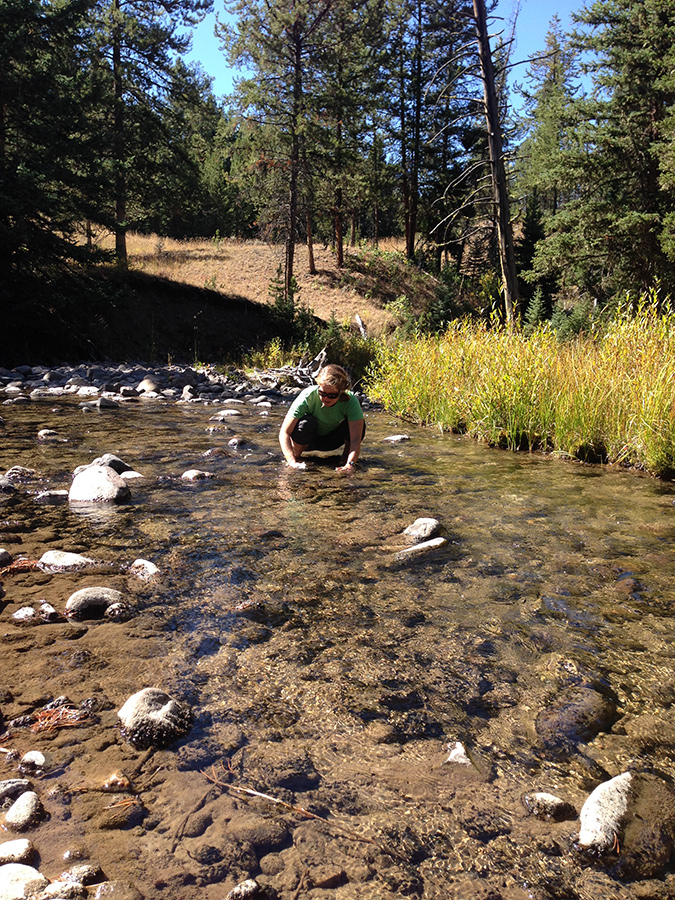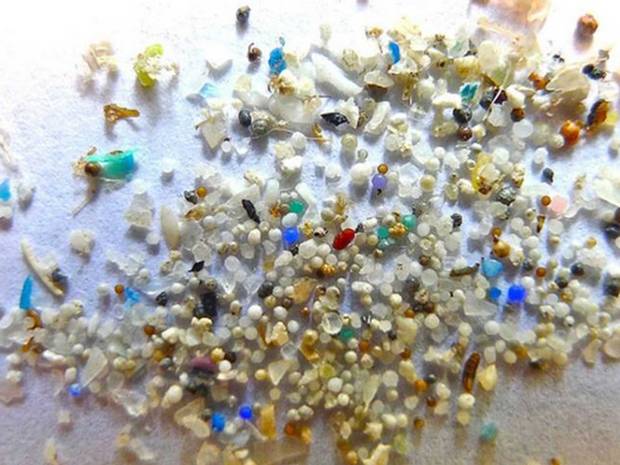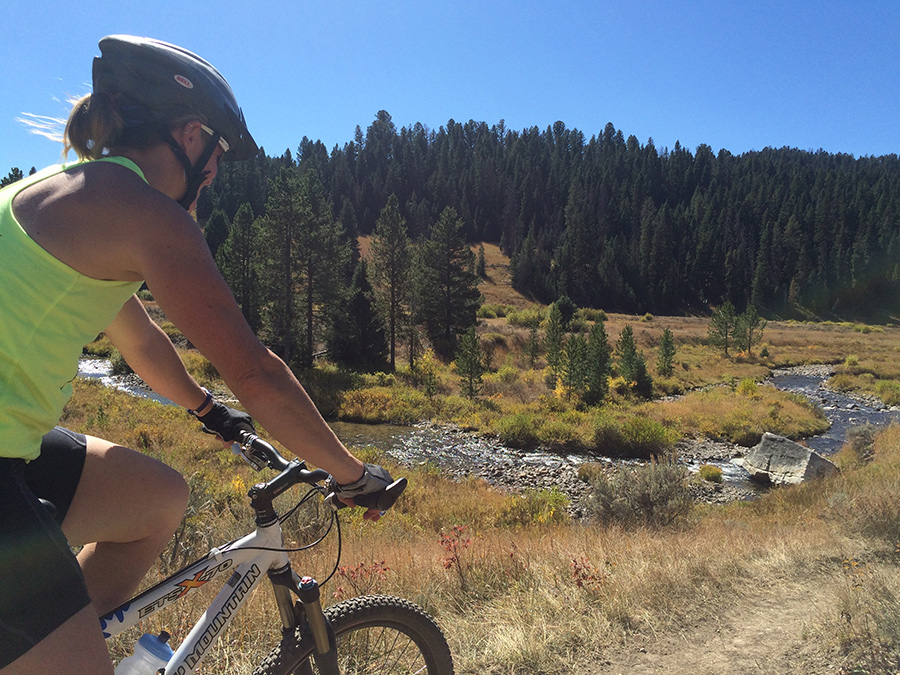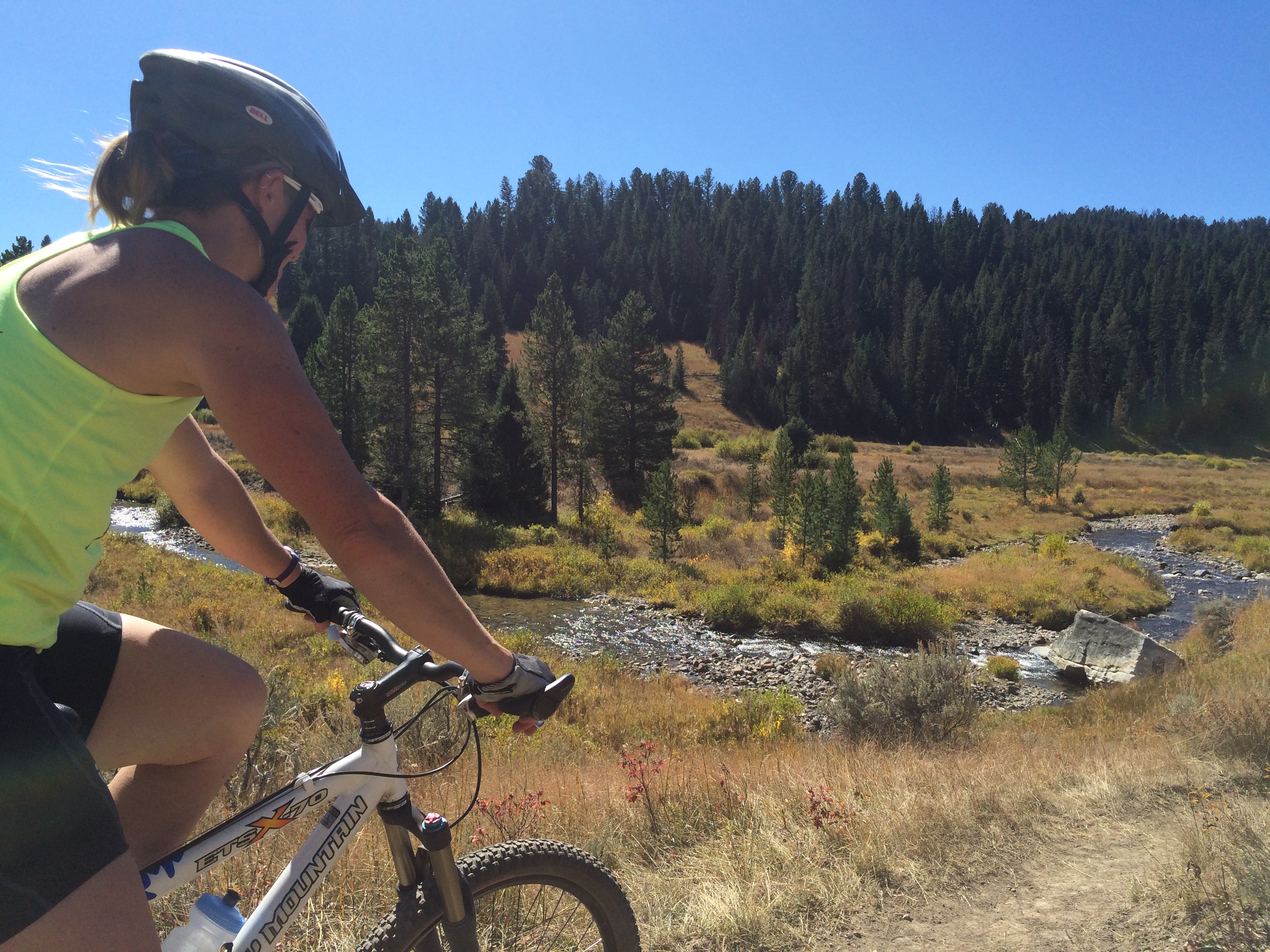
Stephanie, Task Force Big Sky Watershed Corps member, getting her feet wet to collect a water sample from Porcupine Creek. Stephanie and Nancy, Task Force board member, rode their mountain bikes into the backcountry to collect a sample free of human influence.
Over the weekend, the Task Force board and staff had the chance to marry their passion for hydrology and outdoor recreation. The Task Force board and staff are participating in the Gallatin Microplastics Iniative, a study by partner non-profit Adventurers and Scientists for Conservation (ASC) to assess and characterize tiny particles of plastic in the Gallatin River Watershed.
Microplastics are particles of plastics smaller than 5 milimeters in diameter. Tiny particles of plastics come from a variety of sources: they are laundered from synthetic clothing; they are washed down the drain with cosmetics and toiletries; and they decay from larger items, such as plastic bags.
Microplastics are present in rivers and oceans worldwide. Chemicals, such as DDT and BPA, adhere to tiny pieces of plastic. Microplastics provide a pathway for toxins to enter the food chain, impacting every organism from plankton to humans.
A pilot study of 5 sites within the Gallatin Watershed revealed plastic in every sample. The highest concentration of microplastics were found in a sample taken from the West Fork. Thousands of tiny pieces of plastic can be found flowing through your backyard!

Microplastics are barely visible in our rivers and oceans. In order to study these tiny particles, scientists must filter water and analyze samples under the microscope. This photo appeared in The Independent.
Luckily, Task Force partner Adventurers and Scientists for Conservation is tackling this growing environmental problem, both at the local level and worldwide. This past weekend, an enthusiastic group of hikers, bikers, and boaters from all over the Gallatin Watershed met at Moose Creek Flat Campground to kick off the first phase of the ASC Gallatin Microplastics Initiative.

Nancy admiring Porcupine Creek en route to our sampling site, 5 km upstream from the confluence with the Gallatin River.
Throughout the next year, adventurers will collect water samples at designated sites on the mainstem Gallatin River and its tributaries to provide a representative survey of microplastics throughout the Gallatin River Watershed.
In addition, scientists will use polymer characterization on select samples to determine the source of plastic particles. Information from this study will be used to raise awareness and inspire action.
What can you do to help prevent microplastics pollution? Here is a list suggestions from the folks at ASC:
- Don’t buy products with microbeads.
- Wash your fleece and other synthetic items less.
- Consider buying a filter for your washing machine.
- Use less plastic, starting with cloth grocery bags. It’s simple supply and demand.
- Support a microbead ban in your state.
- Talk to your friends and family; informed citizens make better decisions.

